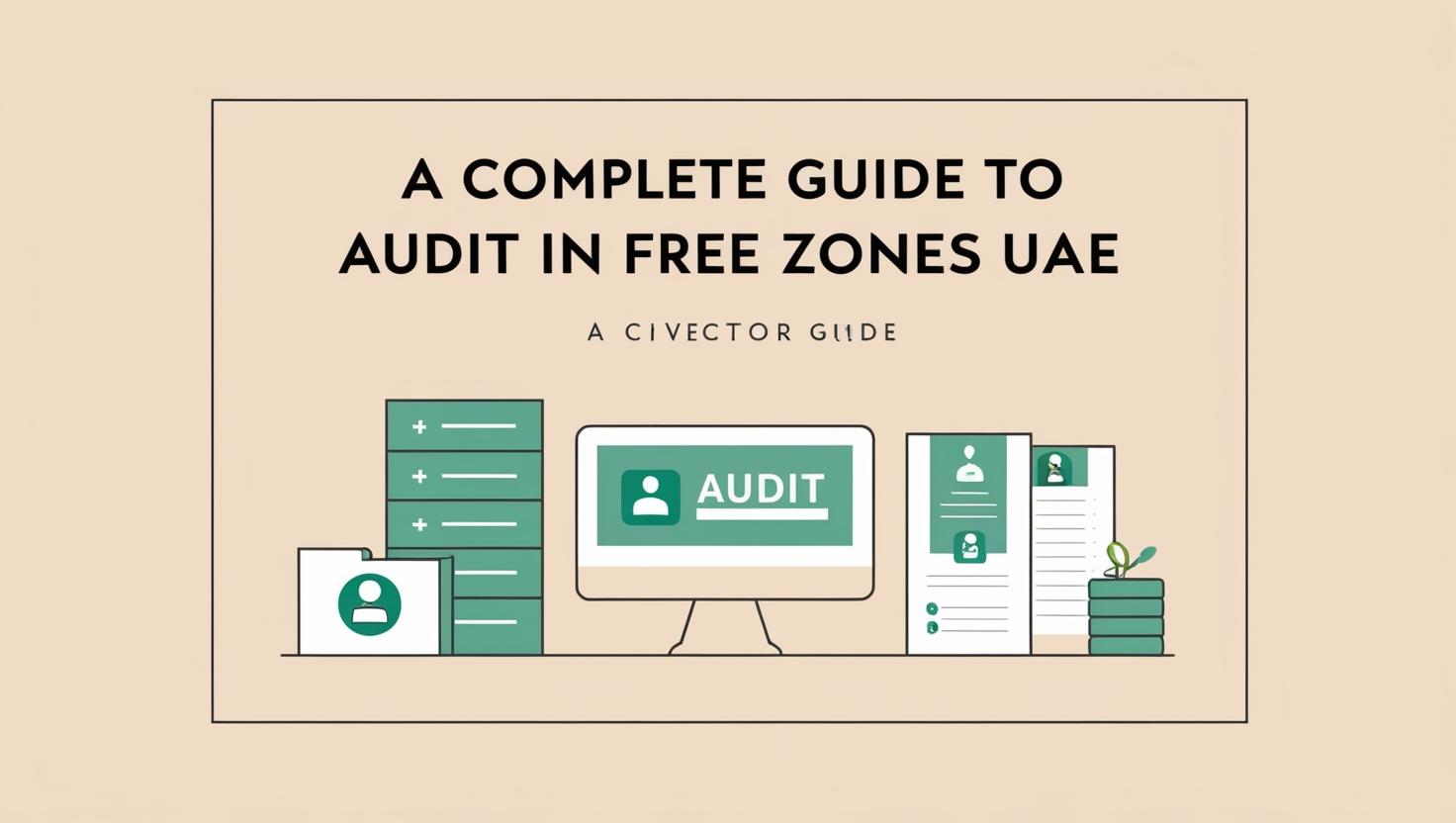Introduction to the Free Zone Ecosystem
The UAE
Free Zones are economic hubs that offer businesses unique advantages like 100% foreign ownership, tax exemptions, and simplified customs procedures. These zones, such as JAFZA (Jebel Ali Free Zone), DAFZA (Dubai Airport Free Zone), and DMCC (Dubai Multi Commodities Centre), attract global entrepreneurs and investors seeking a strategic location to conduct business with fewer bureaucratic hurdles.
However, despite the numerous advantages, businesses operating in
Free Zones must still adhere to specific regulations, including annual audits. These audits ensure that companies comply with local laws, maintain financial integrity, and meet industry standards, all of which are crucial for sustained success in the UAE's competitive market.
Free Zone Authorities and Their Audit Mandates
Each free zone in the UAE is governed by its own regulatory body that enforces specific rules and regulations for companies operating within its jurisdiction. These authorities mandate annual audits for companies in the
Free Zones to ensure compliance with UAE law and international standards, particularly for financial transparency and tax reporting.
Key Free Zones and Their Audit Mandates:
1. JAFZA (Jebel Ali Free Zone): Requires companies to submit annual financial audits to the free zone authority for license renewal.
2. DAFZA (Dubai Airport Free Zone): Also mandates that companies undergo annual audits, especially to ensure VAT and tax compliance.
3. DMCC (Dubai Multi Commodities Centre): Companies registered with DMCC must submit annual audited financial statements to meet compliance and governance standards.
The audit mandates are not limited to financial audits alone but also cover various areas like tax compliance (VAT), legal compliance, and operational efficiency. These audits are designed to help free zone businesses maintain accurate financial records and meet regulatory reporting requirements, including VAT filings to the Federal Tax Authority (FTA).
Audits in Mainland vs. Free Zones
The primary difference between audits in mainland UAE and
Free Zones lies in the regulatory framework and ownership structures.
Mainland Audits:
Companies operating in the UAE mainland must comply with the UAE Commercial Companies Law and follow stricter audit regulations. These businesses are required to submit their audited financial statements to government authorities, such as the Ministry of Economy and the Federal Tax Authority (FTA), to maintain their licenses and tax registration.
Free Zone Audits:
Companies in
Free Zones benefit from more lenient ownership structures and tax exemptions but are still required to undergo annual audits. However, the process tends to be more streamlined, with the free zone authority as the primary regulatory body. Despite the simplified nature of free zone regulations, businesses still need to submit financial audits and ensure that all tax filings are accurate and compliant with the FTA’s requirements.
Preparing for an Audit in UAE Free Zones
Before your business undergoes an audit, it’s essential to prepare adequately to ensure the process is smooth and efficient. Below are key steps businesses in
Free Zones should take:
Key Preparation Steps:
1. Maintain Accurate Financial Records:
Keeping up-to-date and accurate financial records throughout the year is crucial. This includes income statements, balance sheets, bank statements, and VAT records.
2. Ensure Compliance with VAT Regulations:
Free zone businesses are often subject to VAT regulations. Ensure that VAT returns and filings are accurate and aligned with FTA rules.
3. Prepare Supporting Documents:
Be ready to provide supporting documentation for all transactions, such as invoices, contracts, receipts, payroll records, and expense reports.
4. Engage with an Experienced Auditor:
It’s crucial to have an auditor who understands the specific free zone regulations and UAE laws. Choosing an experienced auditor ensures that your business is well-prepared for the audit and that the audit process is completed within the deadlines.
5. Review Internal Controls and Policies:
Ensure that internal policies, especially regarding financial transactions, are properly documented and compliant with regulatory standards.
Common Issues During Free Zone Audits
Despite the streamlined process, free zone businesses often face some challenges during audits. Some common issues include:
Common Challenges:
1. Inadequate Documentation:
A common issue in audits is insufficient documentation. Businesses may fail to maintain accurate and detailed records of financial transactions, leading to discrepancies during the audit.
2. Incorrect VAT Filings:
Free zone companies must be diligent in filing accurate VAT returns. Errors in VAT filings can lead to fines, penalties, and delays in business license renewal.
3. Lack of Understanding of Regulatory Requirements:
Companies sometimes struggle to understand the evolving regulatory requirements for their specific free zone, leading to compliance gaps that may be flagged during the audit.
4. Failure to Align with IFRS:
International
Financial Reporting Standards (IFRS) are commonly applied in free zone audits. Companies that are not familiar with IFRS may struggle to prepare their financial statements accordingly.
5. Internal Control Weaknesses:
Poor internal controls and lack of proper financial oversight can result in audit findings that require immediate corrective actions.
Why Companies Trust Young and Right for UAE-Wide Free Zone Audits
At
Young and Right, we understand the unique challenges businesses in UAE
Free Zones face. We specialize in providing comprehensive audit services tailored to meet the specific needs of free zone companies.
How We Help:
1. Expert Knowledge of Free Zone Regulations:
With years of experience working with free zone companies, we ensure that all financial statements, VAT returns, and compliance documents are aligned with free zone authority requirements.
2. Efficient and Timely Audits:
Our team is equipped with the expertise to complete audits efficiently, ensuring that your business meets deadlines for license renewal and regulatory compliance.
3. Customized Audit Plans:
We provide tailored audit services to suit your specific free zone and industry requirements, helping you address any specific challenges during the audit process.
4. Proactive Guidance and Post-Audit Support:
Beyond the audit, we provide guidance on improving financial operations, optimizing VAT filings, and strengthening internal controls for future audits.
5. Seamless Communication:
We maintain open lines of communication throughout the audit process, ensuring you are kept informed of any findings or areas that need attention.
Conclusion
Auditing is an essential part of operating a business in the UAE’s
Free Zones. It ensures compliance with regulatory requirements, enhances transparency, and builds trust with investors and stakeholders. By choosing
Young and Right as your audit partner, you gain access to a team of experts who understand the nuances of free zone regulations, allowing you to focus on growing your business while we handle the complexities of the audit process.
 YOUNG AND RIGHT
YOUNG AND RIGHT 
